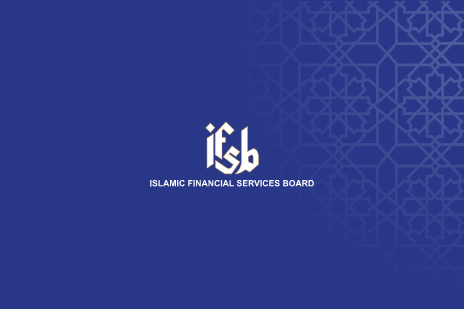
- This event has passed.
7th Islamic Financial Services Board Summit – Global Financial Architecture: Challenges for Islamic Finance
May 3, 2010 @ 9:00 AM – May 5, 2010 @ 9:00 PM

| Date | Time | Topics |
|---|---|---|
| Day 1 03/05/2010 | 09:00 – 11:30 | PRE-SUMMIT EVENT Public Hearing on IFSB Exposure Draft 11: Standard On Solvency Requirements For Takāful (Islamic Insurance) Undertakings |
| 11:30 – 13:30 | Luxembourg Country Showcase | |
| 17:00 – 19:00 | Summit Pre-Registration | |
| 18:00 – 19:00 | Summit Welcome Cocktail and Exhibition | |
| 19:00 – 21:00 | Malaysia Showcase Dinner | |
| Day 2 04/05/2010 | 08:00 – 08:45 | Registration |
| 08:45 – 09:45 | Opening and Keynote Session | |
| 09:45 – 10:15 | Networking Session and Coffee Break | |
| 10:15 – 11:30 | Session 1: The Changing Landscape of Financial Regulation: Implications for Islamic Finance The lessons learnt from the shortcomings in the existing regulations and policies guiding the international financial system have led to significant changes being initiated in the landscape of global financial regulation within the past year In light of this, what are the implications for the regulation and supervision of Islamic finance? Are the existing financial regulation structure and prudential standards for Islamic finance equipped to address the industry’s future challenges? What are the priority areas of prudential regulation of Islamic finance that need attention? | |
| 11:30 – 12:45 | Session 2: New Architecture for Liquidity Management for Islamic Financial Instruments There is an apparent void in Sharī`ah-compliant money market instruments for liquidity management, and in the development of Islamic money markets across the globe. What is the existing framework of liquidity management for Islamic financial instruments? What would be the characteristics of a new architecture for the liquidity management? What have been the hindrances to past attempts to develop Islamic money markets and to facilitate liquidity management by central banks and other financial institutions? How can international and regional cooperation contribute to facilitating effective liquidity management by IIFS with the support of central banks. | |
| 12:45 – 14:00 | Session 3 : Macro-Prudential Surveillance Issues for Islamic Finance Monitoring systemic risks in the financial industry is of immense importance so as to give early warnings of financial instability. This is especially so, given that financial crises can have huge costs. This session will look into the pertinent issues and areas of concern for macro-prudential surveillance in Islamic finance. What structures and risks have to be examined in the Islamic financial services industry? What types of data are needed to conduct macro-prudential analysis and surveillance? | |
| 14:00 – 15:30 | Lunch and Prayers | |
| 19:00 – 21:00 | Summit Gala Dinner & Keynote Address | |
| Day 3 05/05/2010 | 09:30 – 11:00 | Session 4 : Balanced growth of Islamic finance- the Sectoral Composition of the Islamic Financial Services Industry as a contributor to growth with stability The recent global financial crisis has demonstrated that the composition of the different sectors within the financial industry – particularly banking and securities markets and their interaction – plays a role in its balanced development and stability This session will discuss whether the current and evolving composition of the Islamic financial services industry is optimal for its sound development with stability. What role should national regulators and market players have in guiding the balanced development of the banking, capital market and takaful sectors? What are the regulatory challenges in promoting this balanced development? |
| 11:00 – 11:30 | Networking Session and Coffee Break | |
| 11:30 – 13:00 | Session 5 : New Islamic Financial Architecture: Challenges Ahead The relative roles of international financial institutions, standard-setting bodies, and global forums, which constitute the global international financial architecture and infrastructure, are still undergoing transformation in response to the global financial crisis. In parallel, the institutional architecture of financial regulations at the national level must respond to changes in both the industry and the global architecture. To what extent have the roles of international organisations and standard-setting bodies in the supervision of the global financial system changed? Does this imply the need for a new set of international infrastructure arrangements for Islamic finance in order to provide an effective contribution to global financial stability? What are the challenges for the existing International Islamic Infrastructure institutions (e.g. IFSB, etc.). Is there a need for changes in the various national institutional architectures for Islamic finance in response to global developments? | |
| 13:00 – 14:30 | Lunch and Prayers END OF IFSB SUMMIT 2010 |